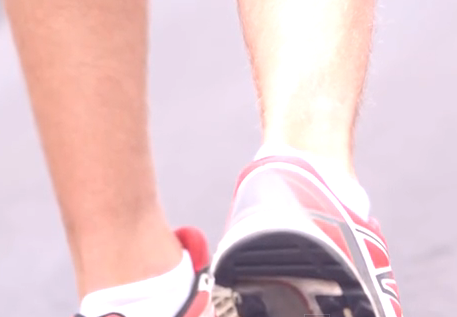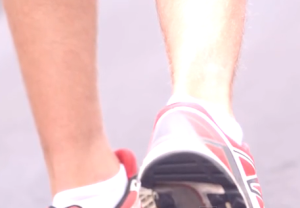Foot cramps at night refers to a sudden, forceful, and involuntary muscle contraction at night. Cramps typically affect the foot or the legs as opposed to other areas of the body.
Home remedies can easily cure foot cramps at night. Persistent cases however need to be checked by a doctor.
Associated Symptoms
Some common signs and symptoms that may accompany foot cramps at night are listed below:
- Obstructions in nerve signal pathways between the brain and leg muscles cause foot cramps. Hence, patients may experience tingling sensations and pain.
- Foot cramps at night persist only for some time and gradually disappear on their own. Lasting cramps can be very discomforting.
- Associated pain can be minor or severe and is often determined by the strength of muscle contraction. Severe pain can prevent carrying out even simple activities.
- The affected muscle may be tender and/or stiff the next day. It may also be hard to one’s touch.
- The inside part of the foot, the big toe, and other toes are more susceptible to suffering from foot cramps at night.
Causes of foot cramps at night
The exact cause of foot cramps at night is not known. However, some risk factors are listed below:
- Increase muscle stress, fatigue, or pressure, or muscle overuse due to prolonged walking, standing, etc.
- Deficient levels of ATP can cause leg muscles to remain extended for prolonged periods and prevent them from relaxing, eventually resulting in severe and sustained foot cramps at night.
- Insufficient preparation of muscles before strenuous activities.
- Activities that increase heart rate, lactic acid buildup around muscles, and reduction of blood calcium levels can trigger foot cramps at night.
- Dehydration, which may occur due to excessive sweating, smoking, increased diuretics use, alcohol abuse, reduced water intake, and excessive caffeinated beverages consumption.
- Poor blood circulation, leading to deficient blood and oxygen flow to the legs and other extremities can cause foot cramps at night. Diabetes is marked by poor blood circulation and hence diabetics are prone to foot cramps.
- Potassium, calcium, and magnesium deficits can affect nerve endings function, thereby causing volatility in stimulation of muscles and foot cramps.
- Obesity, increased age, and sedentary lifestyle can weaken the muscles and facilitate occurrence of foot cramps at night.
- Other risk factors which can trigger the occurrence of foot cramps at night include underlying conditions like renal failure, hormonal imbalance, varied nerve disorders, Parkinson’s disease, plantar fasciitis, prior foot muscle injuries, Achilles tendonitis, cancer, thyroid disorders, and liver cirrhosis; environmental toxicity; hyper flexible joints or flat feet; increased stress on foot during pregnancy; wearing ill-fitting footwear; and intake of certain medications.
Treatment of foot cramps at night
Mild cases of foot cramps at night can be easily treated with home remedies as follows:
- OTC pain killers can alleviate pain
- Decrease muscle fatigue, pain, and weakness via massages and sufficient rest.
- Compress the affected area with an elastic bandage to get relief.
- Spasm pain can be eased via application of ice.
- Ligament and tendon flexibility can be improved via heat application. It also enhances blood flow and eases pain.
- Avoid excess stress on the foot.
- Intake lots of water to avoid dehydration. A balanced diet can help prevent nutritional and electrolyte deficits.
- Lifestyle changes and regular exercises improves overall muscle strength and helps prevent foot cramps at night.

